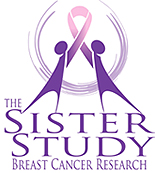Cancer Research Project Deserves Union Support
(This article appeared in the July/August 2005 issue of the American Postal Worker magazine.)
We’ve all been touched by breast cancer. Whether we’ve personally experienced the disease or have a relative, friend, or co-worker who has had to deal with the challenge head on — we know the devastating effects of breast cancer.

In the midst of the uncertainty, it’s reassuring to know that there is hope on the horizon. One such message of hope is spread by the “Sister Study,” a nationwide effort to pinpoint the cause of the disease. The Sister Study seeks the help of the women of the American Postal Workers Union.
The study, conducted by the National Institute of Environmental Health Sciences, is an all-encompassing attempt to learn how the environment and genetics affect our chances of getting breast cancer. To complete the study, researchers say they need to gather data from at least 50,000 women who have a sister who had the disease.
What Sisters Share
Siblings share not only genes but early experiences and environmental settings. Research shows that sisters of women with breast cancer have about twice the risk of developing breast cancer as other women. Studying a large number of sisters is a great way for the Sister Study research team to learn why some women get breast cancer and others don’t.
Is breast cancer caused by something women come in contact with at work, at home, in their communities, or in the personal products they use? That’s what the Sister Study is trying to determine, and working women in unions such as the APWU can play an important role in this landmark study.
Women from the ages of 35 to 74 are eligible to participate in the study if they have a sister who had breast cancer, but they have never had the disease themselves.
The Study at Work
The Sister Study has been set up to make participation as convenient as possible. Every effort is being made to ensure that women feel comfortable, and that data collection procedures don’t interfere with work schedules.
“At the beginning, women will answer some over-thephone and written surveys, and provide blood, urine, household dust, and toenail samples,” said Dr. Dale Sandler, principal investigator of the Sister Study. “After that, for about 10 years,” she said, “we’ll touch base once a year to learn about changes to their address, health, or environment.”
“The Sister Study does not require participants to take any medicine, undergo any medical treatments, or make any changes to their habits, diet or daily life,” Sandler said.
How can an APWU member help? You can take part in the Sister Study or help to spread the word to other women. Joining the Sister Study and obtaining information is easy. Just visit www.sisterstudy.org, or call the research project’s toll-free hotline — 877-4-SISTER (877- 474-7837) — from 9 a.m. to 9 p.m. Eastern Time.
The Sister Study empowers women to help fight breast cancer now so that future generations of daughters, granddaughters, and nieces may not have to face the disease.
Woman by woman … Sister by sister … APWU can make a difference!



